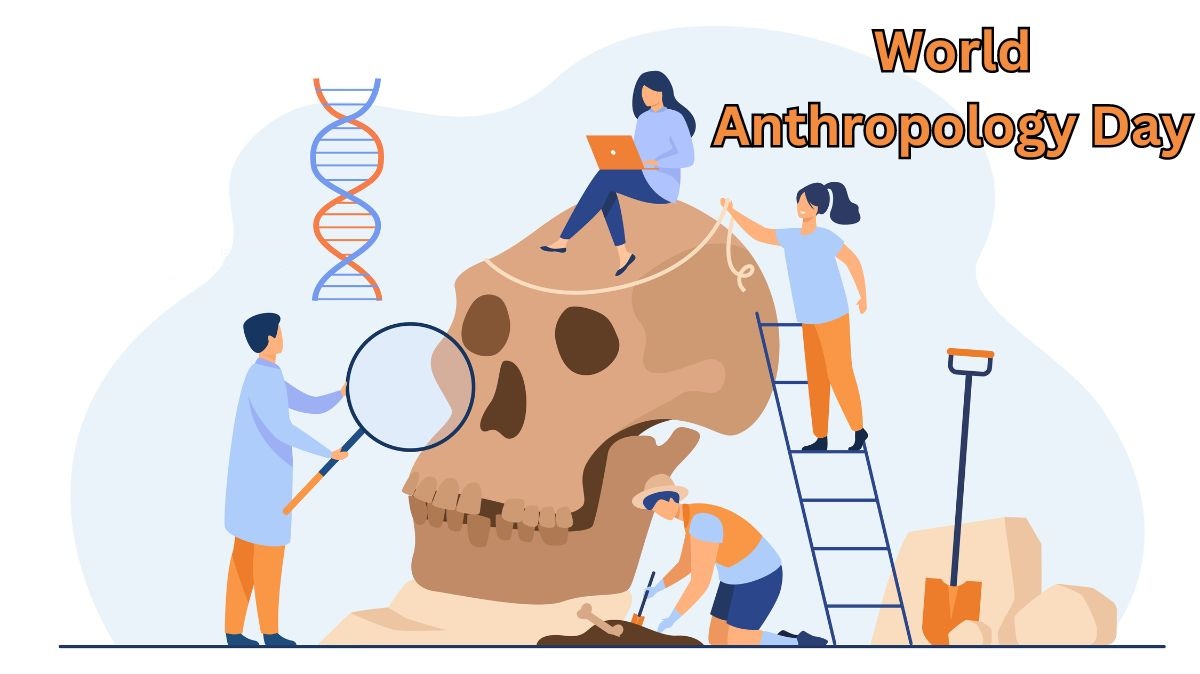Festivals & Events
World Anthropology Day: History and Significance of the Day

This year’s World Anthropology Day, which highlights the scientific study of humans, falls on February 15.
Understanding our world, our behaviors, and how we affect the environment is greatly aided by the study of anthropology, which investigates the beginnings and evolution of human societies and cultures.
What is Anthropology?
Anthropology is the scientific study of people. It looks into the origins and development of human societies and cultures. Distinct scientific approaches are applied to investigate characteristics in historical and contemporary communities. Additionally, the study contributes to our comprehension of the workings of the world, the motivations behind human behavior, and how we impact our surroundings.
World Anthropology Day 2024: Day and Date
World Anthropology Day is celebrated on the third Thursday of February every year. It falls on February 15 of this year. On this day, the public is educated about the importance of anthropology to all of us, and its many facets are honored.
World Anthropology Day: History
The American Anthropological Association (A.A.A.) created National Anthropology Day in 2015, which is when World Anthropology Day first began.
It changed to World Anthropology Day in 2016 in recognition of anthropology’s significance on a global scale. The purpose of the day is to recognize and honor the priceless contributions that anthropologists have made to our understanding of cultures and societies.
The ethnographic method is then used by anthropologists to explain social interactions and regional practices. By immersing themselves in the everyday lives of their subjects, anthropologists can observe and shed light on the true significance of various peoples’ cultures, institutions, and practices. The American Anthropological Association (A.A.A.) founded World Anthropology Day in 2015 to honor and recognize the contributions made by anthropologists.
In 2016, the day that was first celebrated as National Anthropology Day was renamed. It seemed more appropriate to celebrate World Anthropology Day because anthropology is important to everyone, not just in one country.
World Anthropology Day: Significance
World Anthropology Day is significant because it focuses on raising awareness and understanding of the relevance of anthropology in the modern world. This day provides an opportunity for anthropologists to showcase their work and engage with a wider range of people, from scholars and students to the general public. It also provides an opportunity to reflect on how anthropology has advanced our understanding of human diversity and the complexities of society.
Anthropology can teach us about a wide range of subjects that affect people’s lives, including parenting, politics, economics, food, and race. Several other noteworthy points are:
- It raises awareness of anthropological topics that affect our day-to-day existence. As knowledge broadens our perspective on life and disseminates our findings to others.
- It makes it possible for researchers to inform the public and share their findings.
- World Anthropology Day also provides opportunities for new research, which advances humankind.
- The event sparks interest in anthropology and increases public awareness of it.
- Individuals may have the opportunity to pick whether or not to pursue a career in anthropology by learning more about the subject.
In honor of World Anthropology Day, spend some time learning something new about anthropology. While having fun conversations about your favorite anthropological topics, tell your friends and family about the underappreciated field of anthropology.
How Should World Anthropology Day Be Celebrated?
Many businesses, anthropology clubs, museums, schools, and other organizations celebrate this day all over the world. They plan a wide variety of events to educate the general public about anthropology. Universities and colleges also use the day to draw in potential anthropology students. To participate:
- Become more knowledgeable about anthropology.
- Examine works by renowned anthropologists like Ruth Benedict, Zora Neale Hurston, Claude Lévi-Strauss, Margaret Mead, Edward Sapir, and Marcel Mauss.
- Explore the field of sociocultural anthropology by watching movies such as “Into the Wild,” “Avatar,” “One Flew Over the Cuckoo’s Nest,” and “Babette’s Feast.”
- Talk about the importance of studying anthropology with other people.
-

 Business2 weeks ago
Business2 weeks agoNayef Doleh Examines International Humanitarian Fundraising Strategies
-

 Business3 weeks ago
Business3 weeks agoHow Black Banx is Redefining Global Banking Strategies in 2025
-

 Tech3 weeks ago
Tech3 weeks agoMicrosoft Teams to End SMS Messaging Feature Support for Android Phones and Switch to Phone Link App as Alternative
-

 Tech4 weeks ago
Tech4 weeks agoHow to Switch Between Microsoft Teams and Skype, How To Export Messages, Files, and Contacts from Skype Before It Shutting Down
-

 Business4 weeks ago
Business4 weeks agoPurpose of the AIRdiamond Project
-

 Business1 week ago
Business1 week agoHow to fill MSME Form 1? Step-by-Step Guide
-

 Education3 weeks ago
Education3 weeks agoSchool Of Odd Thinkers – Think Odd, Learn a lot, and Earn a lot
-

 Startup3 weeks ago
Startup3 weeks agoFrom Trends to Sales: How Small Businesses Can Capitalize and Maximum Reach on Social Media









